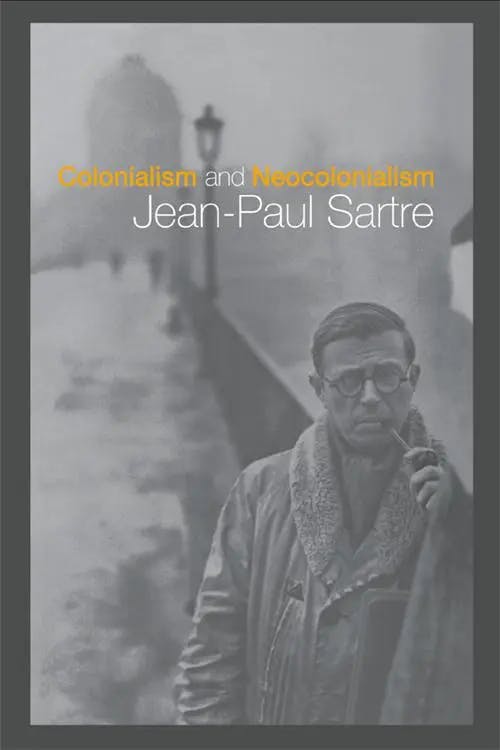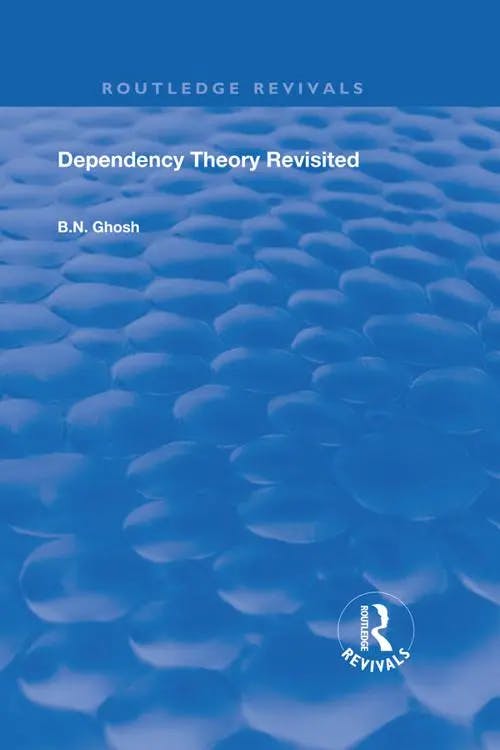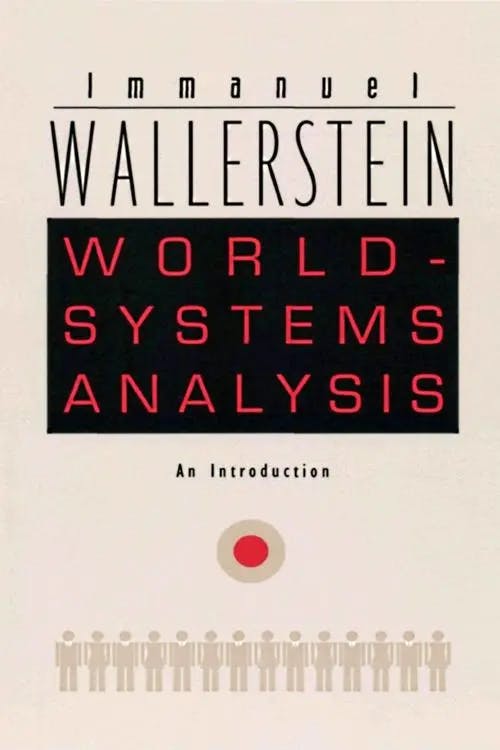What is Neocolonialism?
PhD, English Literature (Lancaster University)
Date Published: 08.03.2023,
Last Updated: 16.01.2024
Share this article
Defining neocolonialism
Though many former colonies gained independence following the Second World War, colonisation has continued in a more subtle form; this is known as neocolonialism. Neocolonialism describes the continued oppression of developing nations through economic and political dominance. It is worth noting that the term ‘developing’ is used here in keeping with the literature and to incorporate those countries which have not been previously subjected to colonial rule, but are nonetheless impacted by neocolonialism. However, it must be acknowledged that the term ‘developing’ is based upon a European standard of progress which disregards the future many non-European countries may not envision or want for themselves. Indeed, the very concept of ‘developing’ nations is shot through with neocolonial dynamics.
The term neocolonialism was first used by Ghanaian president Kwame Nkrumah in his book Neo-Colonialism, the Last Stage of Imperialism (1965). In this, he writes that,
The neo-colonialism of today represents imperialism in its final and perhaps its most dangerous stage…Old-fashioned colonialism is by no means entirely abolished. It still constitutes an African problem, but it is everywhere on the retreat. Once a territory has become nominally independent it is no longer possible, as it was in the last century, to reverse the process. Existing colonies may linger on, but no new colonies will be created…[t]he essence of neo-colonialism is that the State which is subject to it is, in theory, independent and has all the outward trappings of international sovereignty. In reality its economic system and thus its political policy is directed from outside. (Nkrumah, 1965)
Neocolonialism, as Nkrumah shows here, constitutes a more insidious form of imperialism in which a more powerful country keeps a developing nation in a state of dependence. This dependent relationship is seen primarily in former African colonies, though it is also observable can be seen to be practised in Latin America and Asia. In particular, ‘French Africa’ and the Belgian Congo are often cited as key examples of neocolonialism at work. French Africa, also called Françafrique, describes the imbalance in Franco-African relations.
We can see neocolonialist practices at both a government level and through capitalist institutions such as multinational corporations who treat developing countries as sources of cheap labour and raw materials. George Harrison has argued that such international organisations include the World Bank,
The World Bank is the key actor in the construction of governance states in Africa…it is undeniable that the similarity of governance reforms between states–the reason that one can establish a generic category of governance states–owes itself to the fact that the World Bank has ploughed intellectual and financial resources into governance states, and maintains a powerful and close relation with them (The World Bank in Africa, 2004)
It is not only corporations and financial institutions which threaten to exploit developing countries, but powerful figures within these countries themselves. In his preface to Frantz Fanon’sThe Wretched of the Earth(1964), philosopher Jean-Paul Sartre explained developing nations are often controlled by those who have sympathy with, or are incentivised to promote, former coloniser’s interests. In the days of imperial rule, when the world was seen as divided into colonisers and colonised, Sartre argues, ‘an artificially created false bourgeoisie served as intermediaries’ (1964 [2005]). He writes of these bourgeois intermediaries that,
The European elite set about fabricating a native elite; they selected adolescents, marked on their foreheads, with a branding iron, the principles of Western culture, stuffed into their mouths verbal gags, grand turgid words which stuck to their teeth; after a brief stay in the mother country, they were sent back, interfered with. (1964 [2005])
Jean-Paul Sartre
The European elite set about fabricating a native elite; they selected adolescents, marked on their foreheads, with a branding iron, the principles of Western culture, stuffed into their mouths verbal gags, grand turgid words which stuck to their teeth; after a brief stay in the mother country, they were sent back, interfered with. (1964 [2005])
Erasing native culture and replacing it with European notions of Western superiority erodes the sense of identity in the colonised individual, something which postcolonial theorists have previously identified (see our introductory guide to postcolonial theory here). Sartre is arguing here that the indoctrination of the white coloniser’s ideologies has continued past decolonisation and has resulted in the corruption of political regimes of former colonies. Corruption at the highest level in developing nations means that the populations of such countries continue to suffer exploitation and are never truly emancipated from the coloniser.
In Colonialism and Neocolonialism (1964 [2005]), Sartre also critiques the idea of ‘neo-colonial mystification’ in which neocolonialists believe there are,
"some good colonists and some very wicked ones", the latter of which being the sole reason why "the situation of the colonies has deteriorated." (1964 [2005])
Sartre argues instead that the only distinction with this new form of colonisation is that its methods of oppressing, exploiting and controlling developing nations is more insidious. Neocolonialists have mostly moved away from geographic expansion and instead exert control over developing nations by keeping them in a state of dependency.
Dependency Theory
Dependency theory emerged as a response to modernisation theory (developed by W. W. Rostow), which suggested that there were several economic and cultural barriers certain countries had which hindered their ability to progress. Rostow suggested that continued investment by and exposure to the West would mean that developing countries would gradually become more industrialised and, eventually, highly developed. Such a theory can be seen as ignoring the continued oppression and exploitation of developing countries by the West, instead problematically portraying them as potential ‘white saviours’. Economists Raúl Prebisch and Andre Gunder Frank disputed the idea that all developing countries would be able to become fully developed and industrialised with the aid of developed countries and, in fact, were hampered by their involvement with these developed countries. This resulted in the creation of dependency theory.
Dependency theory is used to explain how nations in the Western world expand, economically and technologically, at the expense of poorer countries. It argues that this underdevelopment in certain countries is caused by the exploitation of wealthy nations. One of the main thinkers behind dependency theory was Andre Gunder Frank. Frank was a Marxist sociologist who argued that ‘[d]evelopment somewhere requires underdevelopments somewhere else’. B. N. Ghosh in Dependency Theory Revisited (2019) writes that,
The theory of dependency considers the fact that the social and the economic development of less developed countries (LDCs) is conditioned by the external forces which are nothing but the central capitalism. The metropolitan countries are more powerful capitalist countries but LDCs are weaker and they also do not have the full-boiled capitalism. According to the dependency theory, underdevelopment can be explained by the fact of relations of dominance over the LDCs. (2019)
B.N. Ghosh
The theory of dependency considers the fact that the social and the economic development of less developed countries (LDCs) is conditioned by the external forces which are nothing but the central capitalism. The metropolitan countries are more powerful capitalist countries but LDCs are weaker and they also do not have the full-boiled capitalism. According to the dependency theory, underdevelopment can be explained by the fact of relations of dominance over the LDCs. (2019)
Capitalism’s role in dependency theory, and in neocolonialist practices more broadly, renders both necolonialism at large, as well as dependency theory itself, within the umbrella of Marxist discourse. For more information on Marxist theory, see our introduction to Marxism here.
World-Systems Theory
Adjacent to development theory is world-systems theory. World-systems theory, developed by Immanuel Wallerstein in 1979, builds upon, and often overlaps with, dependency theory and aims to explain unequal relationships in the global marketplace. Wallerstein argues that there is a single system in the world: the capitalist world-economy. The capitalist-world economy is comprised of a world-economy,
a large geographic zone within which there is a vision of labour and hence significant internal exchange of basic or essential goods as well as flows of capital and labour’ and a capitalist system which ‘gives priority to the endless accumulation of capital. (Wallerstein, 2004)
Immanuel Wallerstein
a large geographic zone within which there is a vision of labour and hence significant internal exchange of basic or essential goods as well as flows of capital and labour’ and a capitalist system which ‘gives priority to the endless accumulation of capital. (Wallerstein, 2004)
In the first of his multi-volume work, The Modern World-System I (1976 [2011]), Wallerstein explains how the world is divided into core countries (also known as the metropolis), semi-peripheral countries and peripheral countries (also known as satellites). Peripheral countries are developing countries, many of which were former colonies, that produce raw materials needed by the Core. The Core then purchases these raw materials at a low price as well as selling finished products to the peripheral countries; these peripheral countries are forced to buy expensive products from the core countries due to their own lack of infrastructure and ability to produce these finished goods. Therefore, instead of investing in their own industry, their capital goes back into the core’s economy.
This observation is supported by one of the most important concepts within dependency theory; the Prebisch-Singer hypothesis, developed by economists Prebisch and Hans Singer in the late 1940s. Here, they argue that the price of raw materials (known as primary commodities) declines in relation to manufactured goods over the long term. This, of course, economically benefits the core countries that have the infrastructure to produce more modern goods and finished products. Countries who, due to this vicious cycle of exploitation through core countries, are unable to develop as they continue to produce only raw materials. The final ‘type’ of country as defined by world-systems theory are semi-peripheral countries, such as South Korea and India. Semi-peripheral countries are those which still take advantage of the peripheral’s low-cost raw materials, but are also dependent on the core countries for finished products.
There are three main ways in which peripheral countries are kept in a state of dependency: international trade, Trans-national corporations (TNCs) and official aid:
1.) International Trade
Wallerstein dates back the capitalist exploitative conditions of international relations to the 16th-century slave trade, seeing modern trade as an extension of these relationships (Wallerstein, 2004, 23) . The Core, i.e. the West, relies upon peripheral countries for raw materials such as cocoa beans or cane sugar. These raw materials are produced in accordance with western demand, which remains high. However, the supply increases due to the Core’s ability to purchase cheap labour and materials in numerous countries. Due to the increased supply, overproduction occurs; overproduction results in lower prices. For example, Britain can purchase cocoa beans from Nigeria for a low price. This trade, however, is not guaranteed if Britain found cheaper prices in Peru, for example. Overproduction and the low export value of cocoa beans allows the core to have a great deal of choice. This keeps the peripheral nations in a state of dependence for trade with many selling raw materials for far less than they are worth and paying labourers far less than is sustainable.
2.) Trans-national corporations (TNCs)
A further reason these peripheral or developing countries are kept in a state of dependency, unable to develop, is due to the presence of TNCs. TNCs operate in more than one country and search for the cheapest countries to produce in. TNCs contribute enormously to the world’s global trade output.
These corporations abroad bring their organisations overseas to take advantage of raw materials, low costs of business and cheap labour, but often bring the benefits back to their home economies rather than enriching the economy of the exploited nation. As such, developing nations remain unable to develop and are left in a state of dependency on wealthier countries.
For example, the legal battle between oil giant Shell and the Ogoni people, regarding the devastating environmental impact of their extraction of oil in the area (see Cyril I. Obi, ‘Globalisation and local resistance: The case of the Ogoni versus Shell’, 1997).
Another further example of a lawsuit of this nature occurred in 2000 when Coca-Cola was accused of putting thousands of farmers out of work in Kerala after draining local wells (see H. Berguland, ‘Civil Society and political protest in India – the case of Coca-Cola in Kerala’, 2017; K. M. Sudheesh “Resistance from Below”: An Assessment of the Struggle against Coca Cola Company in Plachimada, Kerala’, 2009).
3.) Aid
The question of granting aid to developing nations is, when viewed with neocolonialism in mind, far from altruistic. Aid is given to developing countries for one of two reasons: to keep consumers from these countries spending money on products from industrialised, western nations and to keep these countries in a state of dependency. Aid and loans to developing states results in debt thus rendering the other nation dependent and vulnerable to exploitation. As Shafiqur Rahaman, Rawshan Yeazdani and Rashed Mahmud argue,
The agents of the former imperialist countries, the World Bank, IMF and IFIC had taken this opportunity appropriately to bound Africa in the neocolonial iron curtain. The WB and the IMF are lending loans to African states with hard terms and conditions. Debt-recipient countries have to pay back with interest that was more than that they had accepted from the agents. Because of lacking capital, technologies and experts the agent compels to depend fully on them. The reality is African states have no options to be free from the imperialist curtain. (‘The Untold History of Neocolonialism in Africa (1960-2011)’, 2017)
This financial debt leaves these countries vulnerable to their debtors who may exploit this dependency for political motivations. Moreover, the granting of these loans leaves nations in a cycle of borrowing, unable to develop their own industry and manufacture their own high-value products.
Debates within Neocolonial Studies
There are numerous internal debates surrounding neocolonialism and its associated concepts and theories. It is worth pausing to consider whether dependency theory is well equipped to help us understand neocolonialism in our ever-expanding global economy.
Young Namkoong writes in ‘Dependency Theory: Concepts, Classifications, and Criticisms’,
The main weakness of dependency theory lies in explaining the origin of underdevelopment. In other words, the relation between underdevelopment and dependency is explained in a circular manner. However, nobody can deny that dependency theory opened up a new perspective on the realities of international political economy. (1999)
Ghosh further cites the theory’s inability to explain the variation of dependency across the globe,
Some of the features of dependency can also be found in non-dependent economies. Moreover, even the developed countries are facing the problems which are generally the characteristics of LDCs. Some of the DCs are plagued with problems like unemployment, inflation/recession and low growth. Dependency per se is neither a necessary nor a sufficient condition for underdevelopment. Dependency theory suffers from circularity of reasoning: a country is poor because it is dependent, and it is dependent because it is poor. (2019)
B.N. Ghosh
Some of the features of dependency can also be found in non-dependent economies. Moreover, even the developed countries are facing the problems which are generally the characteristics of LDCs. Some of the DCs are plagued with problems like unemployment, inflation/recession and low growth. Dependency per se is neither a necessary nor a sufficient condition for underdevelopment. Dependency theory suffers from circularity of reasoning: a country is poor because it is dependent, and it is dependent because it is poor. (2019)
In the same work, Ghosh further outlines several issues with dependency theory and what it fails to address:
- The theory does not account for how wealth and poverty can both be generated by capitalism.
- Exchange is prioritised over surplus production. This is an issue as ‘underdevelopment cannot be satisfactorily explained through exchange relation. Development/underdevelopment is essentially a production-centric problem.’
- The theory ignores class analysis focusing instead on the conflict between the core and the periphery and geographic exploitation; it fails to look at social classes within developing countries which are a central to Marxism.
- Unequal exchange is not ‘explained very satisfactorily either theoretically or empirically’ as it does not consider factor immobility (i.e. when it is difficult for labour/capital to move between areas of the economy such as issues with export or import).
- This theory means that developing countries are able to grow economically if they are still controlled by developed countries. Many countries have been found to develop rapidly despite their links with, and sometimes because of their links with, Western, developed countries.
Despite these oversights in dependency theory specifically, recent scholarship on globalisation has started to focus more on how developing countries continue to be exploited, oppressed and restricted by more developed European countries. J. Timmons Roberts, Amy Bellone Hite and Nitsan Chorev have suggested in their introduction to The Globalization and Development Reader (2014), new literature in this field is conscious of ‘[conceptualising] a highly interdependent and integrated world’. Emerging research on global capitalism may begin to compensate for the binary way in which development theory has tended to view the world, or the singular manner in which world-systems theory views the world.
Neocolonialist Discourses
Despite the end of the British Empire and the abolishment of slavery, colonialism has continued to be rife in subtler forms. In addition to the capitalist hold European powers hold over former colonies and other developing countries, we can see neocolonialism through the implementation of Eurocentric practices across the world. For example, in ‘Neocolonialism in Translating China’ Guoqiang Qiao argues that neocolonialism occurs via literary translation, particularly the translations of Howard Goldblatt which Qiao argues are translated to suit the reading desires and ideologies of a western market. Similarly, a critical review of the literature regarding tourism knowledge by Sarah N.R. Wijesinghe, Paolo Mura and Frederic Bouchon (2019) found that the majority of reviews,
only evaluate the work published in English in highly ranked tourism journals and tend to neglect knowledge systems outside the English-speaking global centres (‘Tourism knowledge and neocolonialism – a systematic critical review of the literature’, 2019).
Even though tourism encompasses the entire globe, a western perspective is still privileged. This is something which Wijesiunghe, Mura and Bouchon argue upholds hegemonic power structures. It is clear to see, therefore, the dominance of neocolonialism through education (via scholarship and translation) to global capitalism to political interference in the affairs of developing countries. The pervasive influence of the West across the globe demonstrates that much is still to be done in order to begin dismantling colonialism’s legacy.
Examples & Impact of Neocolonialism
The consequences of neocolonialist practices are far-reaching and, potentially fatal. The impact of unequal relationships across the globe have came into focus in light of the COVID-19 pandemic. As Dr. Vineeta Gupta and Mervyn Christian write,
Ultimately, decolonizing global health and the pandemic response will save lives and help the global economy. It will restore hope and build unity. If global health governance wasn’t entrenched in power dynamics and motivated by money, the solutions to global health issues would instead be rooted in equity and justice. (‘The COVID-19 pandemic response: A microcosm of neocolonialism that hurts us all’, 2022)
Vaccine inequality, caused by neocolonialism and classism, is further discussed by Dhruv M. Shah, Mrunmayi Kulkarni, and Poonam Mathur in The Impact of Neocolonialism on India’s COVID-19 Response (2022). Colonialism’s legacy, therefore, has continued to endure, economically, politically and socially impacting those from developing nations in ways previously unforeseen. It is evident that neocolonialist practices have proven untenable in a world which is heavily connected through trade and travel.
Further reading on Perlego
Chomsky, N. (2015). The Washington Connection and Third World Fascism. Pluto Press
Coslett, D. E. (2019) Neocolonialism and Built Heritage: Echoes of Empire in Africa, Asia, and Europe. Routledge
Gunder Frank, A. (2015). Reorienting the 19th Century: Global Economy in the Continuing Asian Age. Routledge. Manning, P and Gills
Barry, K. (2013). Andre Gunder Frank and Global Development: Visions, Remembrances, and Explorations. Routledge.
Wallerstein, I. (2011) The Modern World-System II. University of California Press
Wallerstein, I. (2011) The Modern World-System III. University of California Press
Wallerstein, I. (2011) The Modern World-System IV. University of California Press
Neocolonialism FAQs
What is neocolonialism in simple terms?
What is neocolonialism in simple terms?
What is an example of neocolonialism?
What is an example of neocolonialism?
What is the difference between neocolonialism and colonialism?
What is the difference between neocolonialism and colonialism?
Who are some key writers in neocolonial studies?
Who are some key writers in neocolonial studies?
Bibliography
Berglund, H. (2017). Civil society and political protest in India – The case of Coca-Cola in Kerala. India Review, 16(3), 324-343.
Bobai Agang, S. (2016). The Impact of Ethnic, Political, and Religious Violence on Northern Nigeria, and a Theological Reflection on Its Healing. Langham Monographs. Available at: https://www.perlego.com/book/562768/the-impact-of-ethnic-political-and-religious-violence-on-northern-nigeria-and-a-theological-reflection-on-its-healing-pdf
Ghosh, B. N. (2019) Dependency Theory Revisited. Routledge. Available at: https://www.perlego.com/book/1493818/dependency-theory-revisited-pdf
Gupta, V and M. Christian, ‘The COVID-19 pandemic response: A microcosm of neocolonialism that hurts us all’. BMJ Blogs. (March 16, 2022). Abailable at: https://blogs.bmj.com/bmjgh/2022/03/16/the-covid-19-pandemic-response-a-microcosm-of-neocolonialism-that-hurts-us-all/
Harrison, G. (2004). The World Bank in Africa. Routledge.
Namkoong, Y. (1999). Dependency theory: concepts, classifications, and criticisms. International Area Review, 2(1), 121-150.
Nkrumah, K. (1965) Neo-Colonialism, the Last Stage of imperialism. Thomas Nelson & Sons. (Transcribed by Dominic Tweedie).
Rahaman, S., Yeazdani, R., & Mahmud, R. (2017). The untold history of neocolonialism in Africa (1960-2011). History Research, 5(1), 9-16.
Qiao, G. (2018). Neocolonialism in Translating China. CLCWeb: Comparative Literature and Culture, 20(7), 3.
Sartre, J. P. (2005) Colonialism and Neocolonialism. Routledge. Available at: https://www.perlego.com/book/1602795/colonialism-and-neocolonialism-pdf
Shah, D. M., Kulkarni, M., & Mathur, P. (2022). The Impact of Neocolonialism on India’s COVID-19 Response. Annals of Global Health, 88(1).
Sudheesh, K. M. (2009). ‘RESISTANCE FROM BELOW’An Assessment of The Struggle against Coca Cola Company in Plachimada, Kerala. The Indian Journal of Political Science, 839-852.
Timmons Roberts, J, Bellone Hita, A., and Chorev, N. (2014) The Globalization and Development Reader: Perspectives on Development and Global Change. Wiley-Blackwell. Available at: https://www.perlego.com/book/994175/the-globalization-and-development-reader-perspectives-on-development-and-global-change-pdf
Wallerstein, I. (1976 [2011]). The Modern World-System I. University of California Press. Available at: https://www.perlego.com/book/550480/the-modern-worldsystem-i-pdf
Wallerstein, I. (2004) World-Systems Analysis. Duke University Press Books. Available at: https://www.perlego.com/book/1465746/worldsystems-analysis-an-introduction-pdf
Wijesinghe, S. N., Mura, P., & Bouchon, F. (2019). ‘Tourism knowledge and neocolonialism–a systematic critical review of the literature.’ Current Issues in Tourism, 22(11), 1263-1279.
PhD, English Literature (Lancaster University)
Sophie Raine has a PhD from Lancaster University. Her work focuses on penny dreadfuls and urban spaces. Her previous publications have been featured in VPFA (2019; 2022) and the Palgrave Handbook for Steam Age Gothic (2021) and her co-edited collection Penny Dreadfuls and the Gothic was released in 2023 with University of Wales Press.



